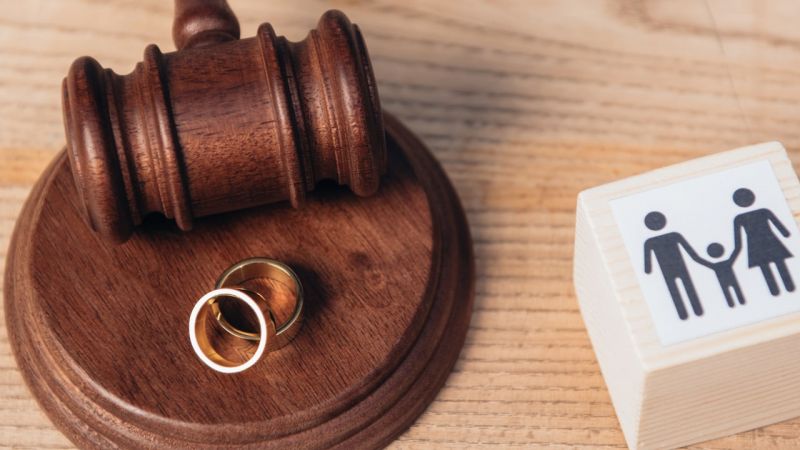With Teen Parents, Who Is Responsible for Child Support?

Table of Contents

Table of Contents
When it comes to teen parents, child support is often complicated. Because the parents of the child may be considered minors themselves, there may even be instances when their parents are required to pay child support.
In this blog article we’ll discuss issues of paternity, teenage child support, and the potential legal impact on any grandparents.
Child Support for Teen Parents
By definition, most minors are not self-supporting. Many teenage parents will need assistance from their parents, as they will not be able to support their own needs, let alone their child’s.
But there is some nuance here depending on the actual age and legal status of the children.
For instance, in Illinois a child who is sixteen or seventeen may seek legal emancipation from their parents. If the parent who is responsible for child support (generally the non-custodial parent, often the father) has an obligation for support that they cannot afford, under the “Personal Responsibility and Work Opportunity Reconciliation Act of 1996” their parents (i.e. the grandparents of the infant) may be responsible to pay the child support due.
Conversely, if the child support obligor—meaning the party who owes the support—is emancipated, then the responsibility will rest with them rather than their parents. This is because the law considers emancipated minors as legal adults.
The 1996 “Personal Responsibility…” Act states that even teenagers (or their parents, if the teens cannot pay) may be responsible for child support if the other parent is receiving welfare on behalf of their infant.
Here’s another nuance to consider: if one parent is a minor and the other is not, then the adult will be responsible for child support. This would not apply, of course, if both parties were unemancipated minors.
If you’re the parent of a teen parent, then you should discuss child support rights and obligations with an attorney. The earlier the better, especially if paternity is questioned.
Teen Parents and Paternity Tests
Because teen parents are frequently unmarried, paternity must be accepted or legally proven. (When you are married there is a presumption the husband is the biological father.)
Paternity is a legal acknowledgment of the parental relationship between a man and a child born to unmarried parents. Without establishing paternity, a father has no legal rights to custody or parenting time. Likewise, without paternity being established, a mother has no right to receive child support. The tradeoff is one of custody and parenting time versus support.
In Illinois, paternity is governed by the “Illinois Parentage Act,” in conjunction with the “Illinois Marriage and Dissolution of Marriage Act.”
The basic gist of Illinois’ paternity laws is that if a father is not listed on a child’s birth certificate, and if the father did not sign a “voluntary acknowledgment of paternity,” then under the law either parent may file a legal “petition to establish parentage” to obtain a court order establishing fatherhood.
If either party contests such parentage, then the court will likely order DNA testing. Once paternity is accepted or proven, the parties must finalize an agreement for custody, visitation, and child support. Child support may include additional support measures such as for health insurance, unreimbursed medical expenses, and daycare costs. If the parties cannot finalize an agreement, then there will be a hearing and the court will render a decision on these issues.
One potential hang-up is that minors cannot generally execute contracts without parental permission. Accordingly, the grandparents may need to co-sign any agreements to ensure that they are legally binding.
If a presumptive father refuses to take a paternity test, then the court will assume that they are the parent. A “default” finding of paternity generally carries the same legal weight as when a party cooperates with the testing, and simply being a minor will not be sufficient to forestall a paternity test. Just as a breathalyzer refusal generally carries the same penalties (and then some) of driving under the influence on our roadways, refusing to take a paternity test is generally not helpful to your cause. Court-ordered DNA tests are considered scientifically accurate and are difficult to dispute.
(If an issue involves an adult having alleged relations with a minor, then you may also wish to consult with a criminal lawyer before a paternity test is taken. But as we are a family law firm rather than a criminal law firm, we will not focus on that aspect here.)
In sum, children are expected to be cared for and financially supported—even if a child is born to minor parents. If the parents cannot pay, then the grandparents may be legally responsible to pay until the parents are able. If you have a child confronting teen pregnancy or parentage issues, then you should seek legal counsel as soon as possible to further learn the rights and responsibilities available to your family.
Chicagoland Family Law Attorneys
Have questions about divorce in Illinois? Call or complete an online contact form to schedule a consultation with the Law Offices of Jonathan Merel, P.C.
We stand ready to discuss these important matters with you.

Written By Jonathan Merel
Jonathan Merel is an experienced attorney who advocates for his clients in all divorce and family law proceedings, including settlement negotiations and trials. Jonathan founded Merel Family Law in early 2009 after working for many years at another family law firm in Chicago. Through his hard work and unwavering dedication to his clients, Jonathan has quickly grown the firm to become one of the premier divorce and family law firms in the Chicagoland area.
Jonathan has a great deal of experience in obtaining favorable outcomes for his clients in multi-million dollar marital estates and contested custody suits (custody is now known as the allocation of parental responsibilities in the State of Illinois). His ability to settle heated divorces and custody disputes has gained him a great deal of respect from fellow attorneys and judges within the Chicagoland legal community. When settlement is not a viable or reasonable option, Jonathan’s experience as a zealous litigator in the courtroom has produced outstanding results for his clients.











